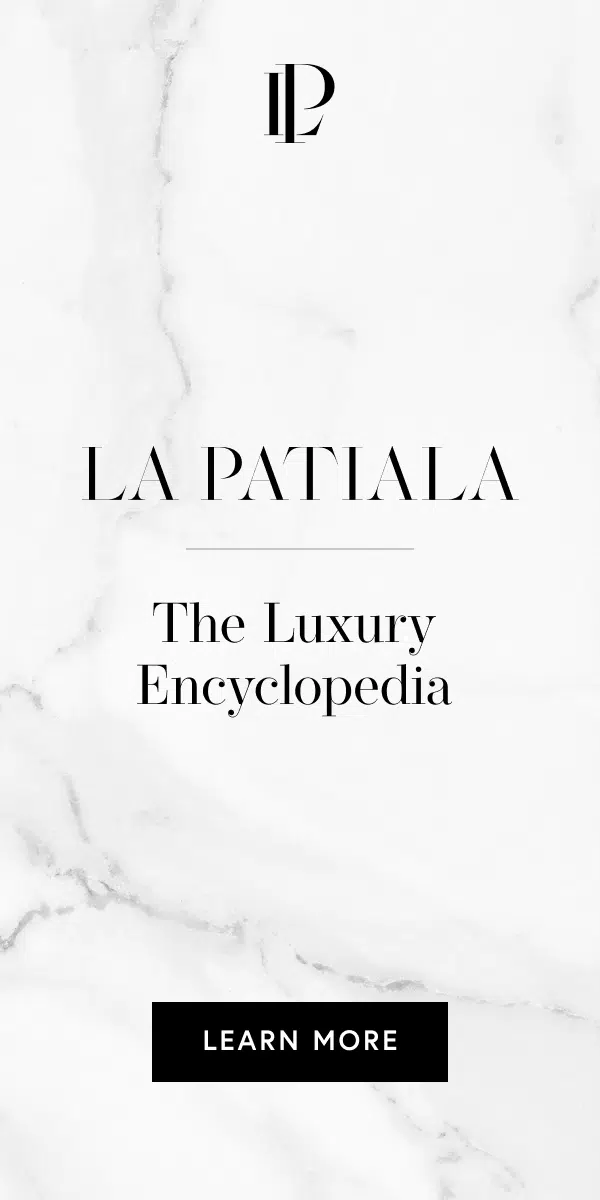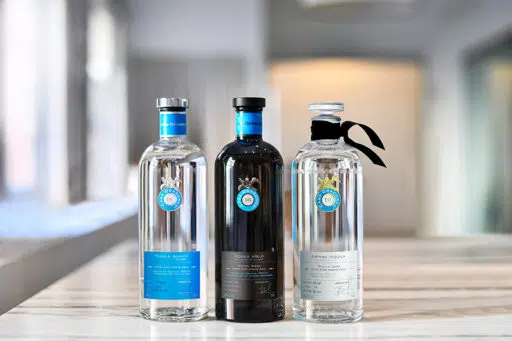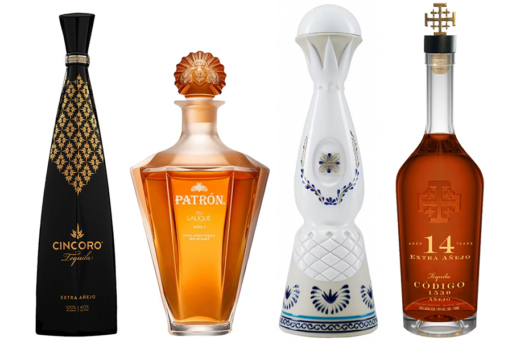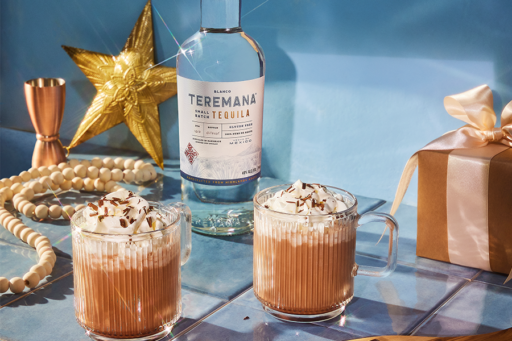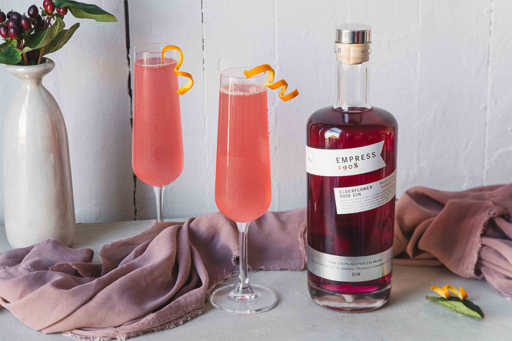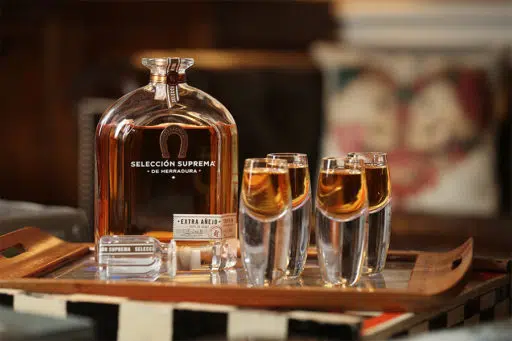Everything You Need to Know About Mezcal
In this guide, we break down everything you need to know about Mexico’s smoky distilled spirit — mezcal — and show you the best expressions to buy.
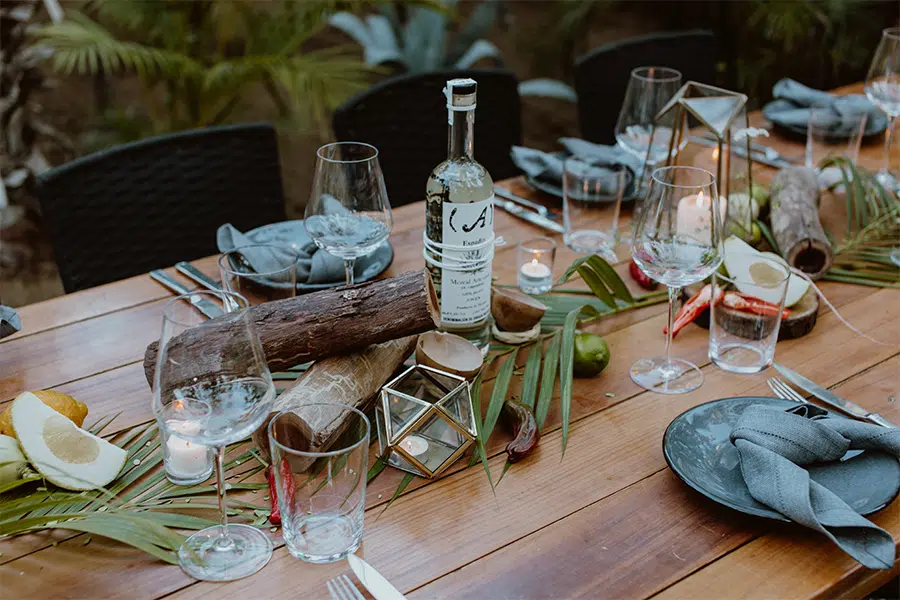
The word mezcal comes from the Aztec word, mezcalli — a combination of melt (agave) and ixcalli (cooked). Mezcal is a Mexican distilled spirit made from the agave plant, as is tequila, but that’s where the similarities end. Mezcals have a unique, earthy, and smoky taste, which comes from its unique roasting process.
What are the Differences Between Tequila and Mezcal?
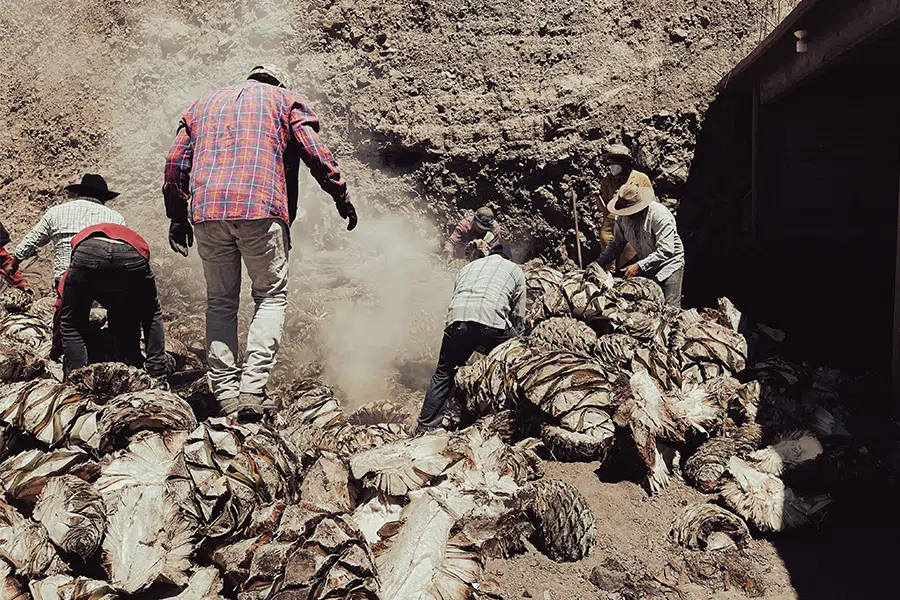
Mezcal, like tequila, is an agave-based spirit that comes from Mexico. While tequila must be produced in Jalisco, Nayarit, Tamaulipas, Michoacan, or Guanajuato, mezcal can be produced in nine different regions of Mexico. Typically, it comes from Oaxaca, one of the most biodiverse regions in the world and also home to hundreds of species of agave. Another difference between tequila and mezcal is that mezcal can be made with several different types of agave, while tequila must be made of at least 51% blue agave. So, all tequilas are a type of mezcal, but not all mezcals are tequila.
How is Mezcal Made?
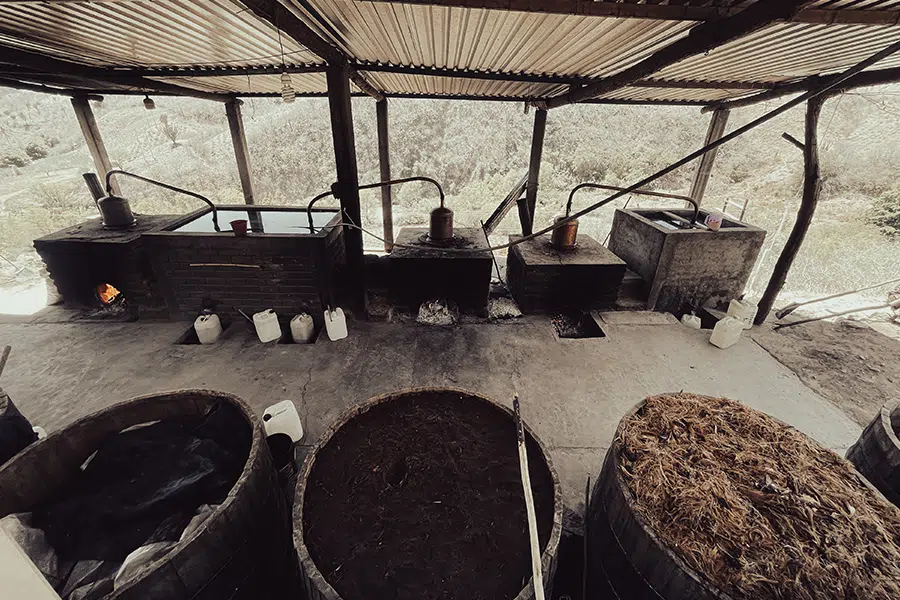
Mezcal is made by roasting agave in large pits lined with lava rocks. A wood fire burns in the bottom of the pit, which heats the rocks. Once the fire burns out, the roasters fill the pit with the piña, the heart of the agave. Afterward, they bury piñas in the earth and roast them for several days. This slow baking process atop the charcoal gives mezcal its characteristic smoky flavor. (In contrast, when making tequila, they steam the piñas.) After being freshly dug from their pit, then the cooked piñas are crushed the juice is fermented. Finally, they distill the spirit in clay pots or copper stills and sometimes age it in oak barrels before bottling.
Our Favorite Mezcals
Acre Mezcal

For a truly authentic mezcal, we love Acre Mezcal. Acre Baja, an award-winning hotel, bar, and restaurant located in the foothills of San José del Cabo, created this delicious spirit. Mezcalero (the name given to the distiller of mezcal) Honorato Cruz and his family, who come from the Zapotec village of Santa Ana del Río, Oaxaca, produce its mezcals. The mezcal uses two rare agave plants — tobalá and tepeztate — which impart a sweetness to the expressions. Acre Mezcal uses traditional production methods to create mezcals from four different types of agave: espadín, cenizo, tobalá, and tepeztate.
Casamigos Mezcal Joven
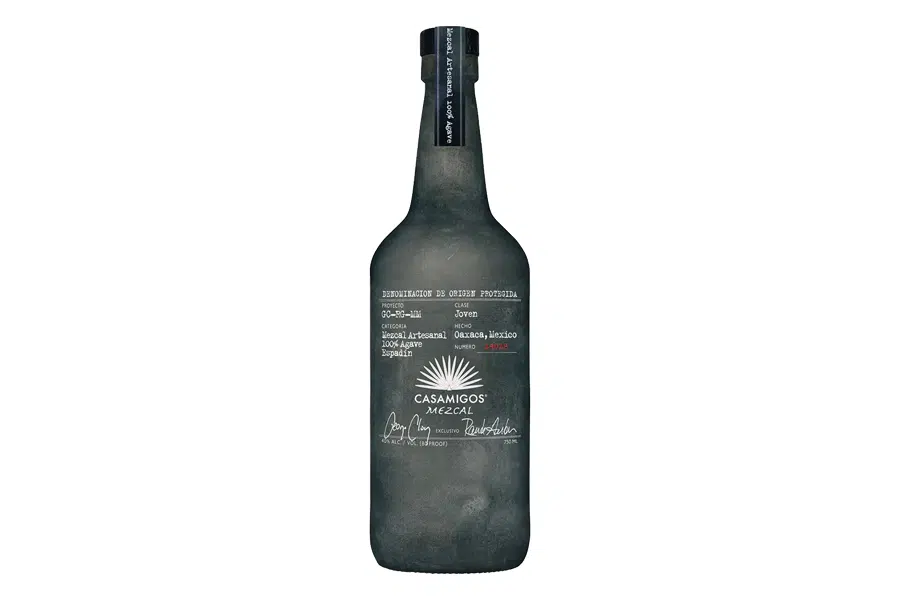
Mezcal Joven is a recent addition to the billion-dollar tequila company Casamigos. A fifth-generation mezcal-producing family brought it to founders George Clooney, Rande Gerber, and Mike Meldman, who loved it and added it to their portfolio. It’s a small-batch mezcal with notes of black pepper, which gives the spirit a subtly smoky taste that’s not too overpowering and leads to a long, silky finish.
Lobos 1707
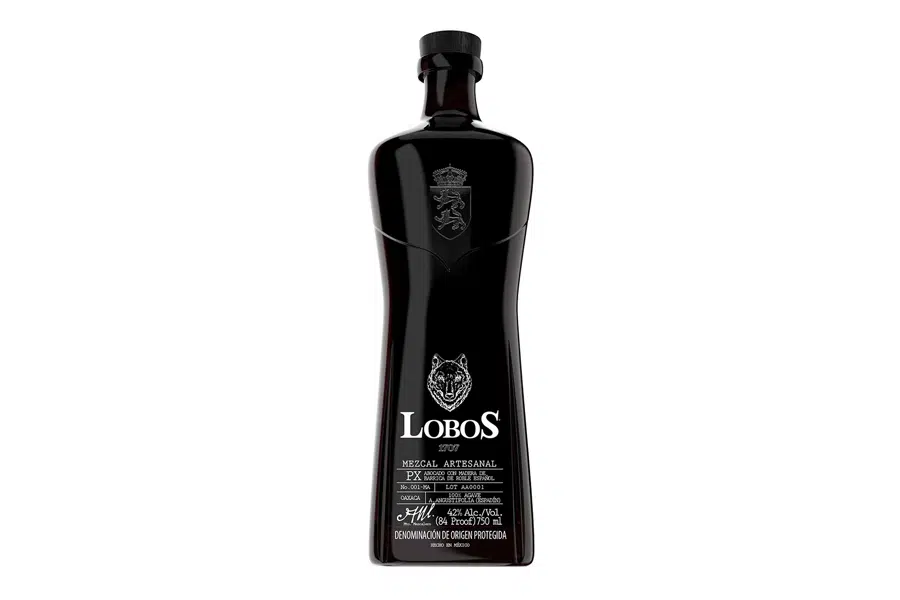
A new name on the tequila and mezcal scene, Lobos 1707 made quite a splash once Lebron James came on board as an investor. Its Artesanal Mezcal comes in a sleek bottle, but the presentation isn’t the only thing this spirit has going for it. It ages in Pedro Ximénez sherry casks from Spain, an unusual choice. The result is a bold, spicy, and smoky flavor. Lobos means “wolves” in Spanish, and the company donates a portion of its proceeds to wolf sanctuaries.
El Jolgorio
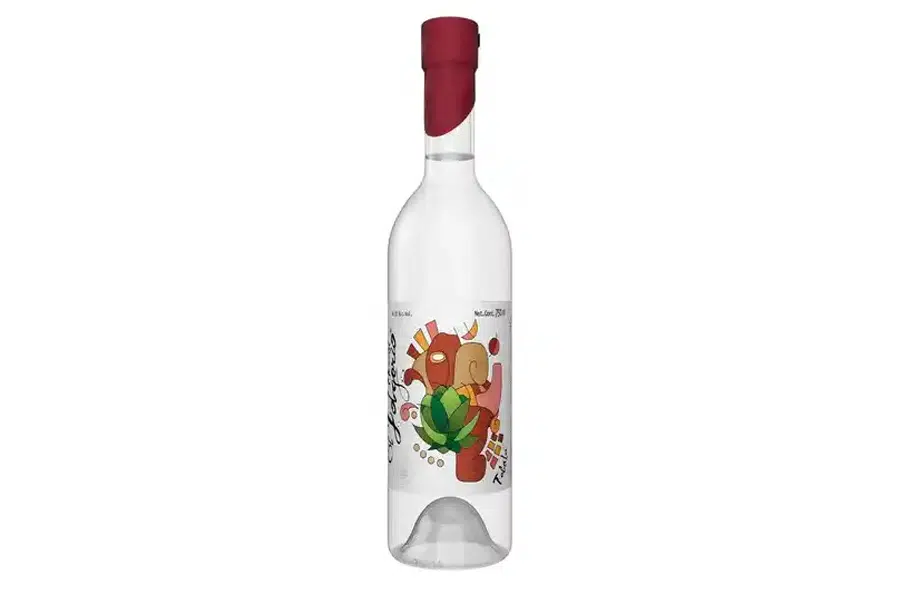
This unique consortium of top mezcal distilleries near Oaxaca began in 2010, and in 2019, it released a lovely collection of 16 mezcals, each produced by a different family. Each expression is a reflection of the family and region it comes from. You can find some made from tobalá, the rarest agave, which produces a fruity nose. There are also special releases with semi-wild arroqueño agave, which can take up to 30 years to reach maturity. Every bottle includes tasting notes, as well as information about the family that created the expression.
Clase Azul Mezcal Guerrero
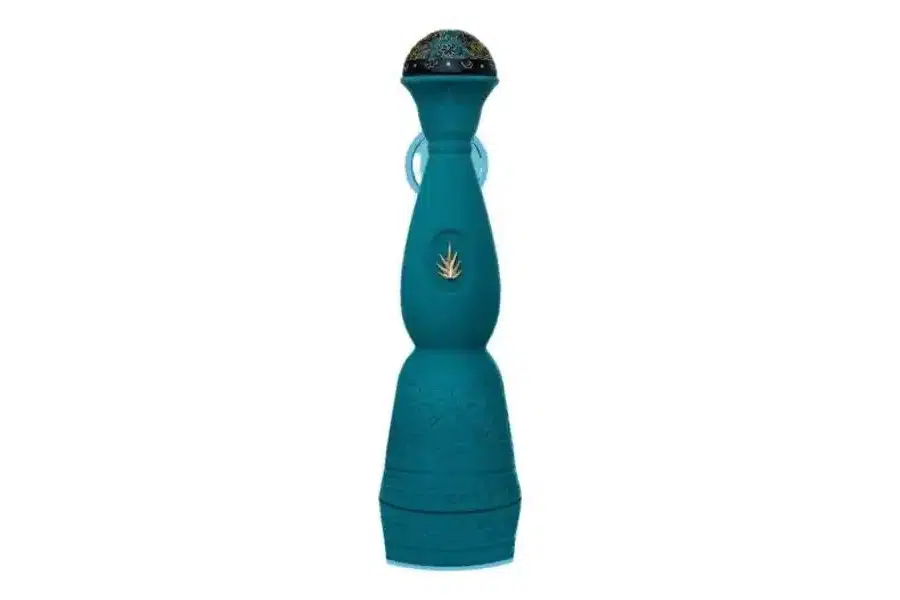
Clase Azul produces its Mezcal Guerrero in the Mexican state of Guerrero. It pays tribute to the state’s culture, landscapes, gastronomy, and art, as well as the strength of its women. The mezcal comes in a gorgeous jade-green decanter handcrafted by local artisans. Clase Azul uses a rare variety of agave — the papalote agave — which grows wild in the mountains of Guerrero. This unique agave gives the mezcal flavors of wood, lemon, and pepper alongside light tobacco notes.
Dos Hombres Tobalá
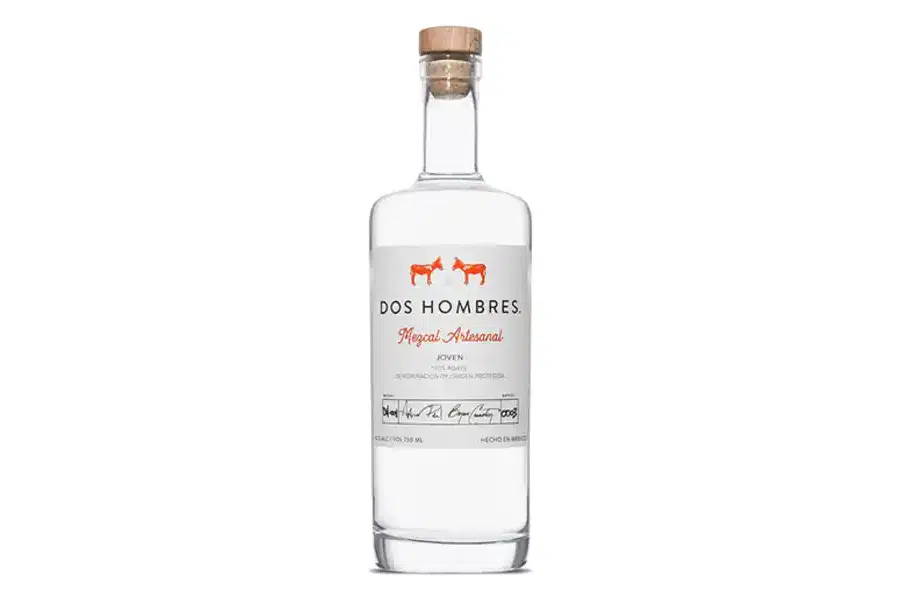
Breaking Bad acting duo Brian Cranston and Aaron Paul created Dos Hombres with a third-generation mezcalero in 2019. Since then, it has won many prestigious awards. They make the limited-edition Tobalá Mezcal from 25-year-old tobalá agave plants, which come from the sacred Copal trees in the region of San Luis del Rio, Oaxaca. Traditionally, people of the village use the resin from the Copal trees to bless and purify the land. They cook the agave in underground pit ovens, then mill the cooked agave with a horse-drawn tahona (a large stone wheel). Next, they ferment it with mountain spring water. Finally, they double distill it in copper stills. This spirit has lovely notes of plums, chocolate, and lily flowers.
Pierde Almas Tobziche Mezcal
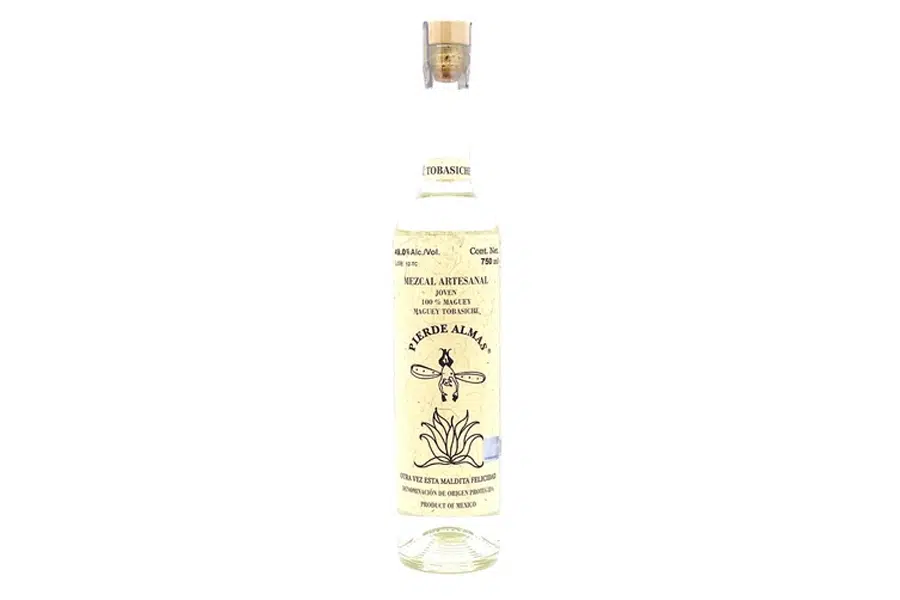
Pierde Almas Tobaziche is an artisanal mezcal created with the wild maguey tobaziche agave, a member of the karwinskii agave family. Produced by skilled maestro mezcalero Agapito Hernandez in San Baltazar, the flavor is exquisite, with a sweet bite and hints of wet clay, as well as the aromas of the fresh agave plant and notes of cedar. The Pierde Almas brand runs a wild agave reforestation program, as well as other sustainability initiatives.

